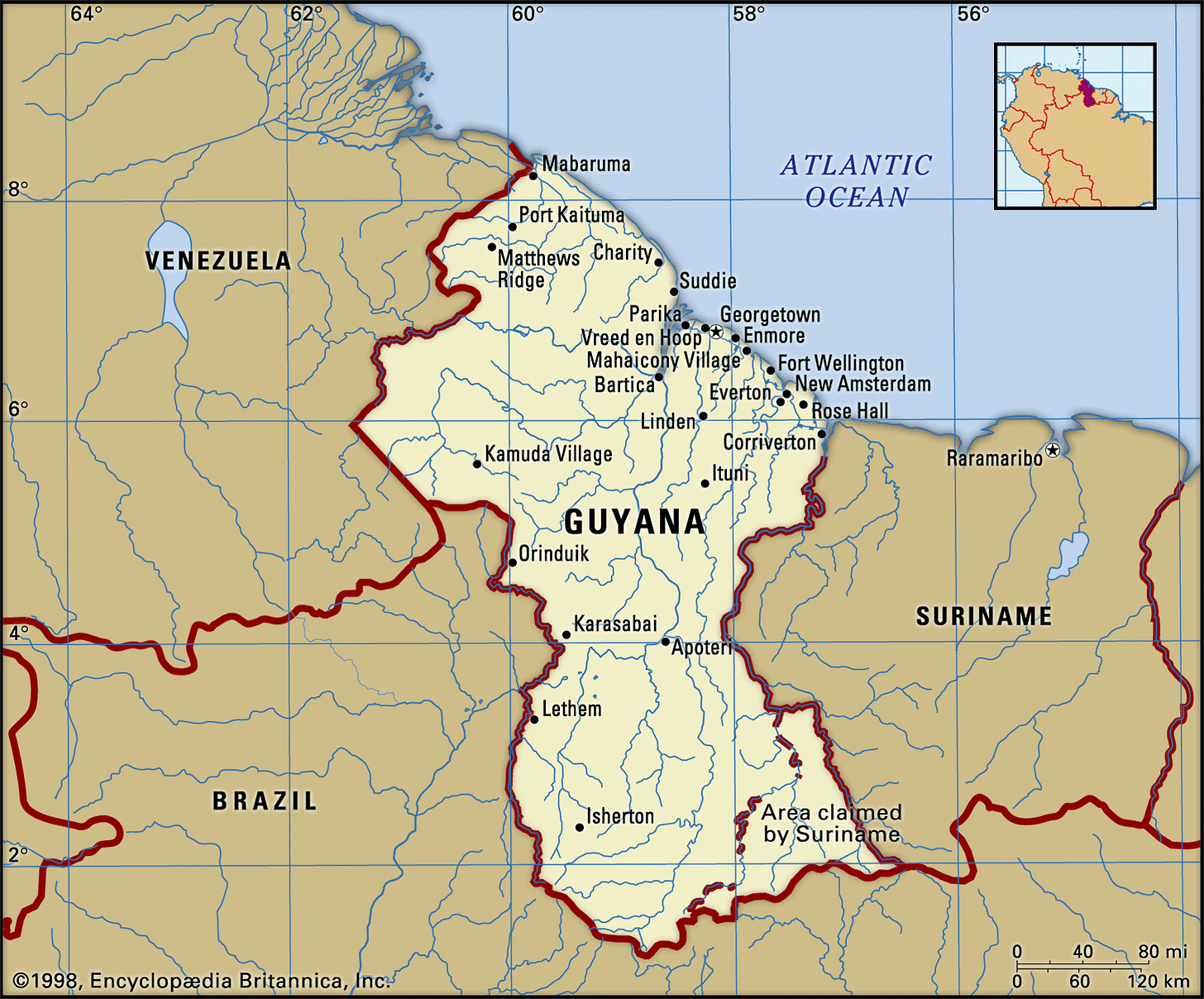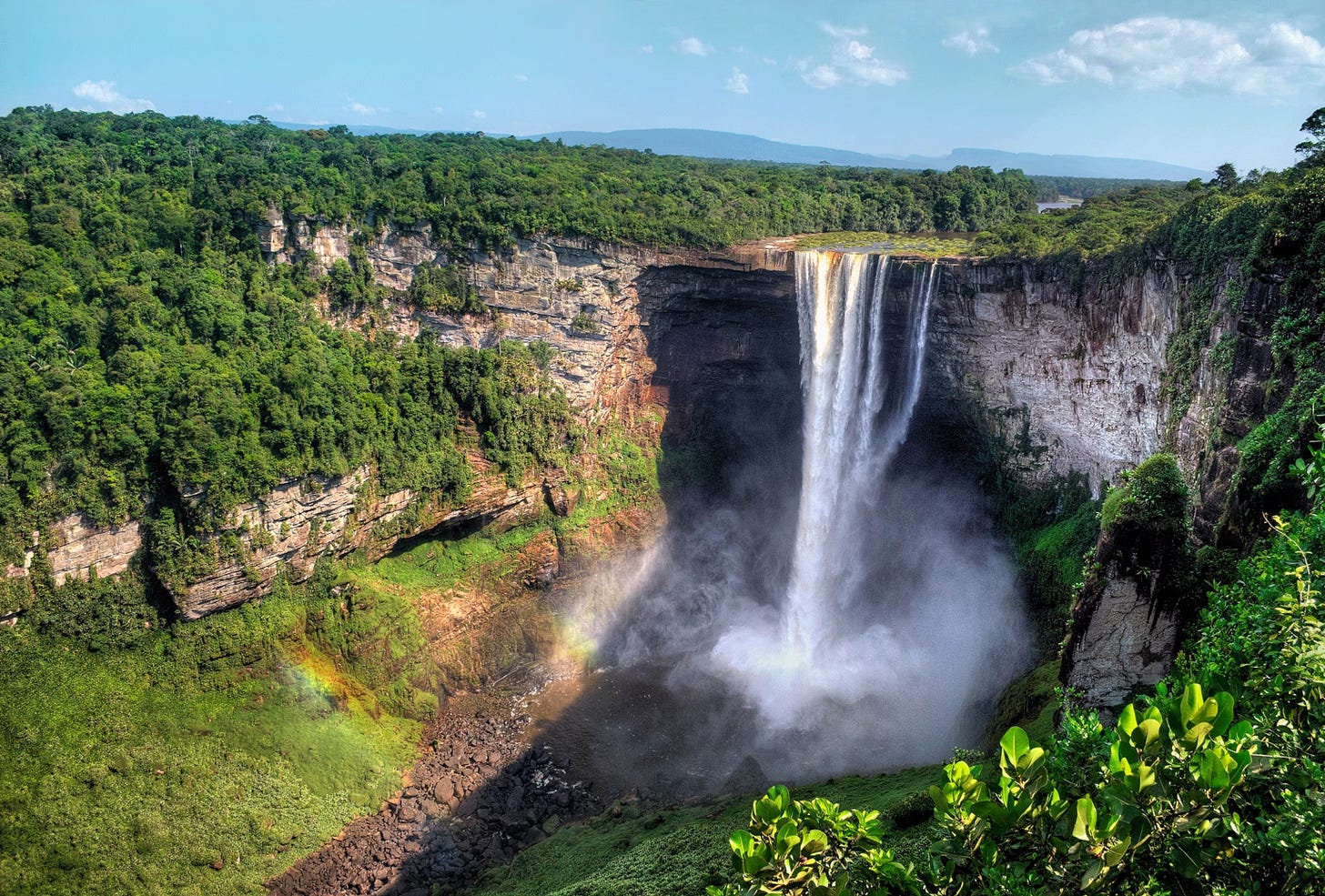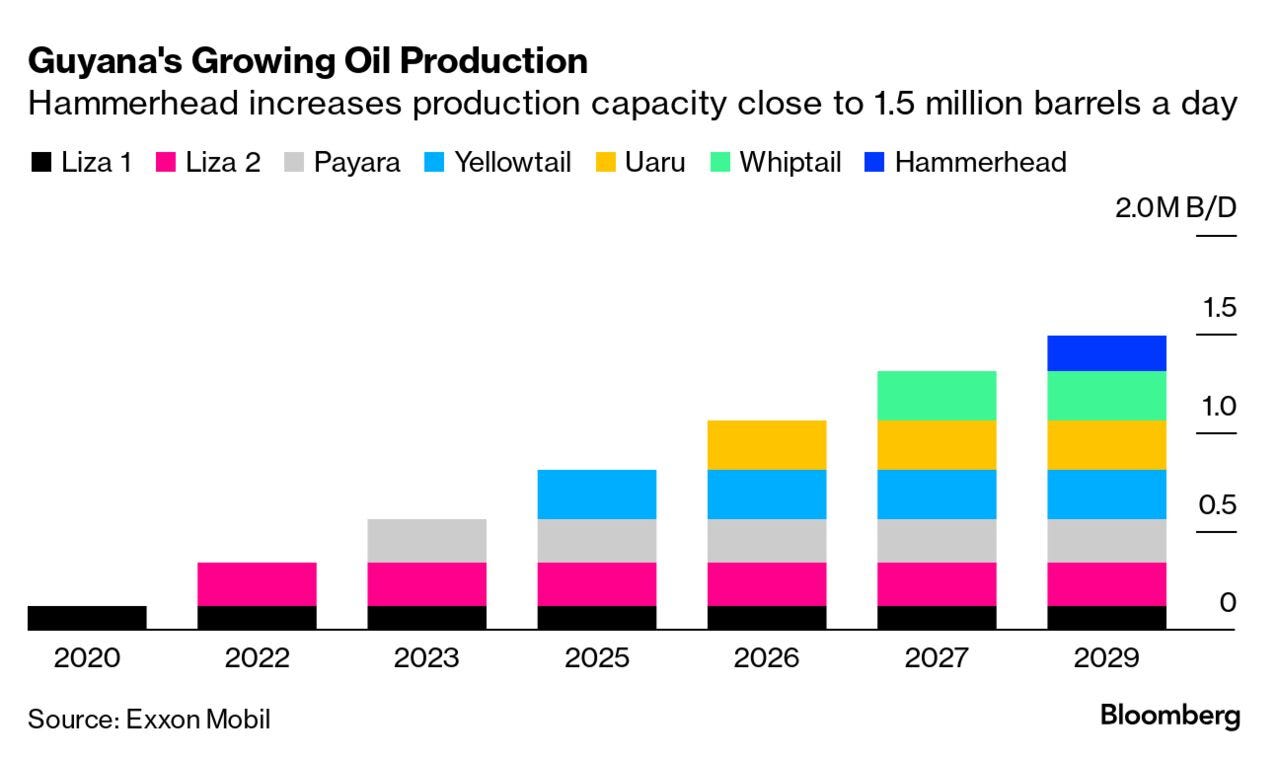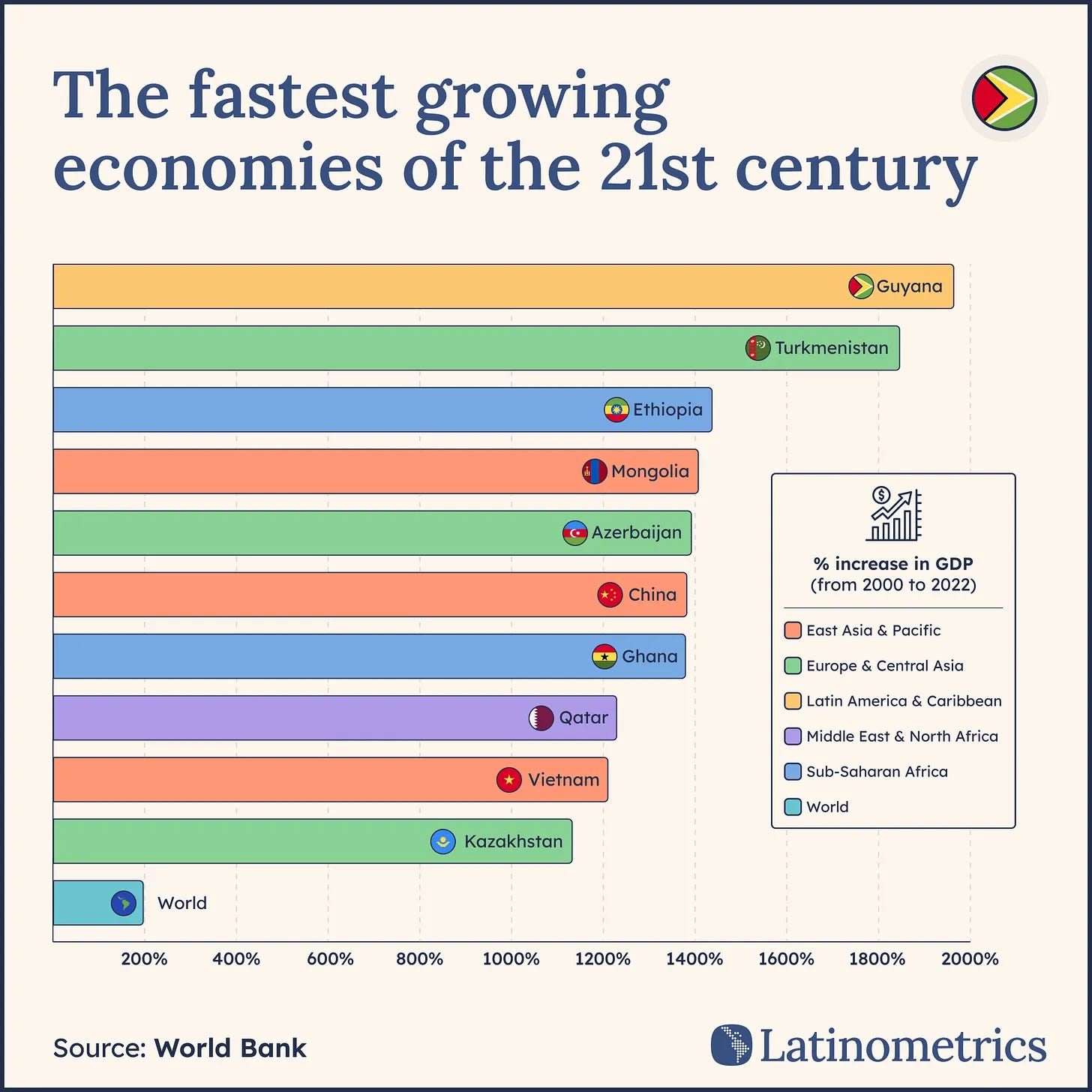Whatsup Squad,
I recognize some of you have been with me from the jump, and others have joined more recently.
For those who don’t know, I am Guyanese!
My dad grew up in Paradise, Guyana and immigrated to the United States at 25.
That introduction is important because, for the fifth year in a row, Guyana holds the title for the world’s fastest-growing economy.
🇬🇾 Guyana at a Glance
If you look on a map, you’ll see Guyana is located in South America.
It is the only English-speaking country on the continent.
That said, Guyana’s ~800,000 inhabitants are culturally Caribbean through and through.
Notably, the country is home to Kaieteur Falls — the largest single-drop waterfall in the world.
Economic Landscape
Historically, Guyana has been one of the lowest-income countries globally, with its economy based on the agricultural and mining sectors.
The nation’s fortune began to change in 2015, when ExxonMobil discovered the Liza-1 oil well 120 miles’s off Guyana’s Atlantic shore.
Impressed by the reservoir’s potential, the Houston-based giant focused on exploring the larger region known as the Stabroek Block.
They have since found several other massive oil and gas fields.
Liza-1 has been producing oil since 2019, but, with new projects in the pipeline, the country’s overall production is set to ramp up.
If approved by the middle of 2025, Hammerhead will maintain Exxon’s record of bringing a new Guyana project online roughly every 18 months.
Even without the Hammerhead project, Guyana is on track to become a top 20 oil producer globally!
More Money More Problems
Through oil production, Guyana has transformed into the world’s fastest-growing economy, and it looks set to keep growing.
Guyana’s GDP grew an eye-popping 63% in 2022, 38% in 2023, and over 49% in the first half of 2024.
The share of the oil sector increased from 0.2% of GDP in 2015 to 57.3% in 2022, displacing the agricultural sector as the main economic driver.
And as oil production continues to increase, so too will GDP.
But the oil-driven GDP increase introduces a challenge: how can Guyana transform its newfound wealth into sustained progress for its population?
For starters, they must avoid “Dutch disease”, a problem that has plagued neighboring Venezuela.
Dutch disease is an economic term describing the paradox where the rapid growth of one sector, like oil, can harm the broader economy.
The risk of “Dutch disease” underscores the importance of diversification.
Fortunately, in Guyana, the non-oil economy continues to thrive, expanding at an estimated 12.6% in the first half of 2024.
Looking Ahead
Under President Irfaan Ali’s administration, sports in Guyana have seen an unprecedented surge in investment and infrastructure development.
In 2020, the government allocated $3.7 million to the Ministry of Sport. That investment surged to $21 million in 2024.
During his recent address to Parliament, President Ali doubled down on this commitment, asserting that sports are a central pillar of national development.
A cornerstone of this sports strategy is the government’s collaboration with international institutions, including the University of Florida and the Toronto Raptors.
Masai Ujiri, President of the Toronto Raptors, met with President Ali to explore avenues through which the 2019 NBA champions can contribute to the growth of basketball in Guyana.
Key areas of focus included the development of sports facilities, the organization of coaching clinics, talent identification programs, and the promotion of grassroots basketball initiatives in the country.
As part of the collaboration, Ujiri is expected to lead a delegation to Guyana later this year to kickstart these initiatives.
Guyana also boasts a new sports product — The Global Super League T20 cricket tournament.
With $1 million in prize money, the league is fully supported by the government of Guyana.
Final Thoughts
Guyana must navigate a path forward that avoids the fate of other petrostates that have relied too heavily on oil.
In its efforts to lean into sports, I can’t help but draw parallels to Saudi Arabia and its Vision 2030 plan to diversify its economy from oil.
There’s too much to unpack with Guyana in just one article, so stay tuned for new developments and a deep dive on the country’s love-hate relationship with ExxonMobil.
Until next time ✌🏾
Are you interested in partnering with BACKCOURT? Click below to learn more about sponsorship opportunities.









Sounds exciting and a great post! Looking forward to seeing the sports ecosystem growing in Guyana